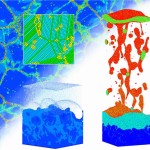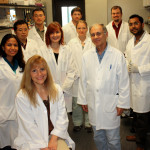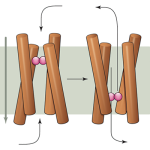Researchers are using XSEDE compute resources to study how lasers can be used to make useful materials. In this podcast, Dr. Zhigilei discusses the practical applications of zapping surfaces with short laser pulses. Laser ablation, which refers to the ejection of materials from the irradiated target, generates chemical-free nanoparticles that can be used in medical applications, for example.
Video: TACC Powers Stampede Supercomputer with Dell Servers and Intel Omni Path
In this video, Tommy Minyard from TACC describes how Dell helped develop the 9.6 Petaflop Stampede supercomputer for scientific computing. “The Texas Advanced Computing Center supports the University of Texas System and National Science Foundation researchers with the newest version of their Stampede High Performance Computing cluster. Stampede uses Dell PowerEdge servers, Intel Xeon processors and the new Dell Networking H-Series switches and adapters based on Intel Omni-Path Architecture. These newly implemented technologies greatly reduce latency, optimize traffic flow, and give Stampede a peak performance of 10 petaflops.”
Podcast: Supercomputing Powers Efforts to Save Ocean Coral
What can we do to help ocean coral survive Global Warming? In this TACC podcast, Jorge Salazar looks at how researchers are using the Stampede supercomputer to investigate how Corals can genetically adapt to warmer waters.
Podcast: TACC Supercomputers Power Cancer Discovery
In this podcast, Karen Vasquez and Albino Bacolla of the University of Texas at Austin describe how TACC supercomputers have helped scientists find a surprising link between cross-shaped pieces of DNA and human cancer.
Podcast: Supercomputing Synthetic Transporter Proteins
articleIn this podcast, Michael Grabe from the University of California – San Francisco describes how scientists designed completely from scratch a protein molecule that behaves like a slice of life.








